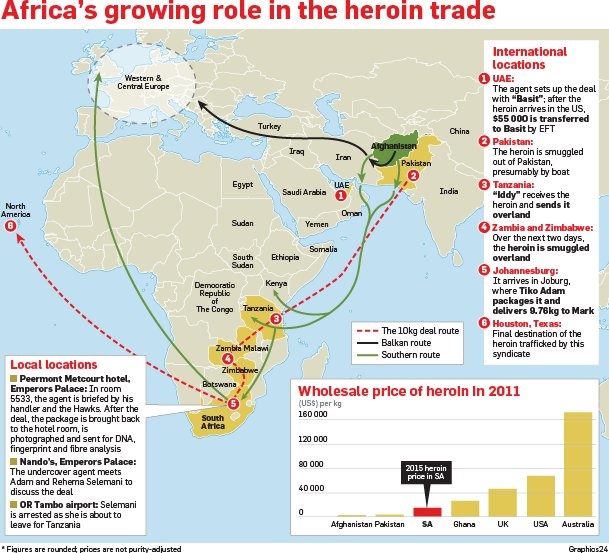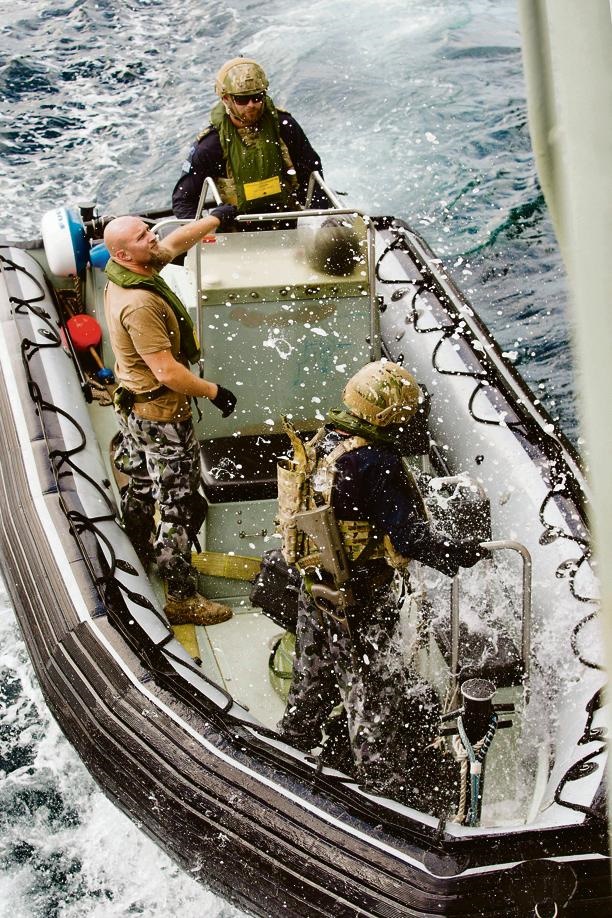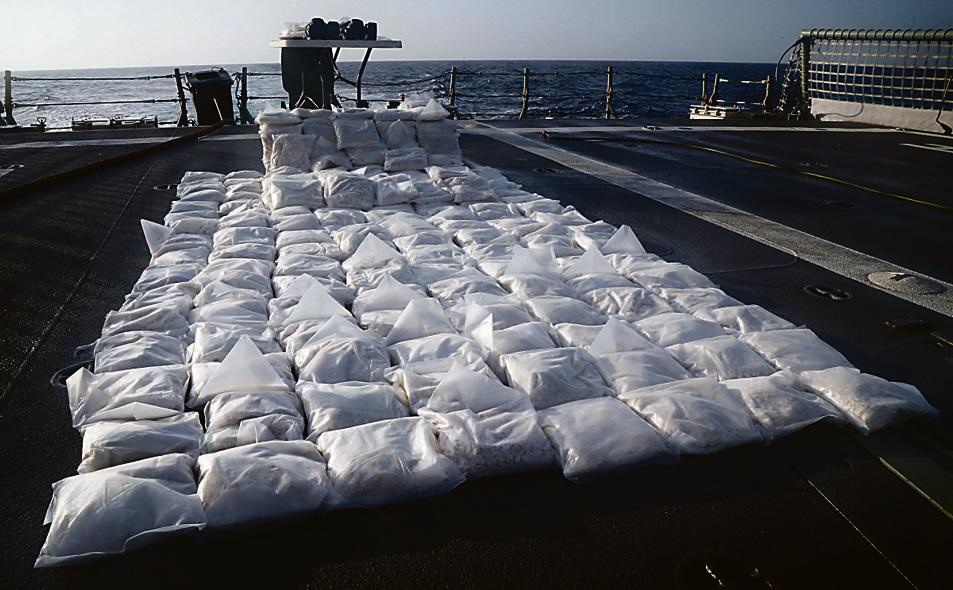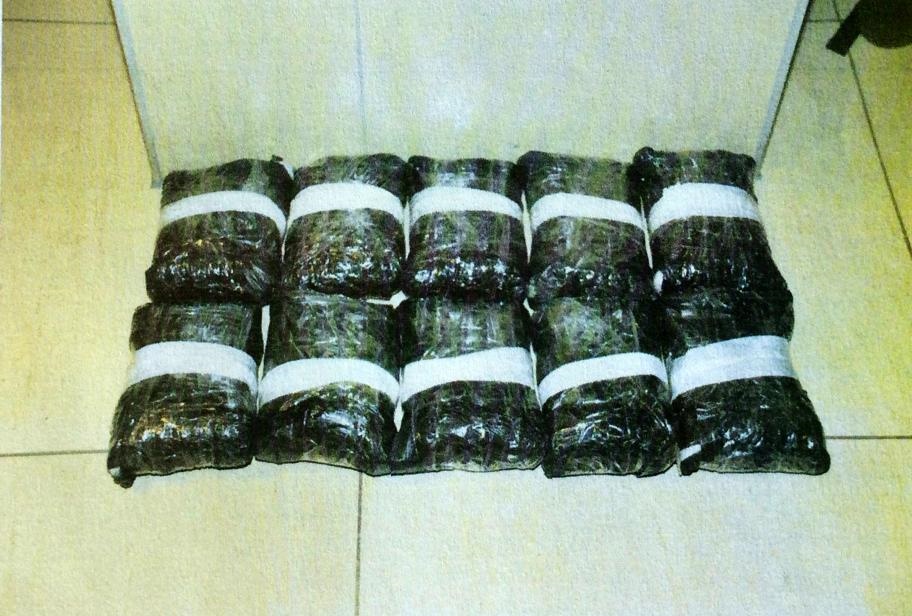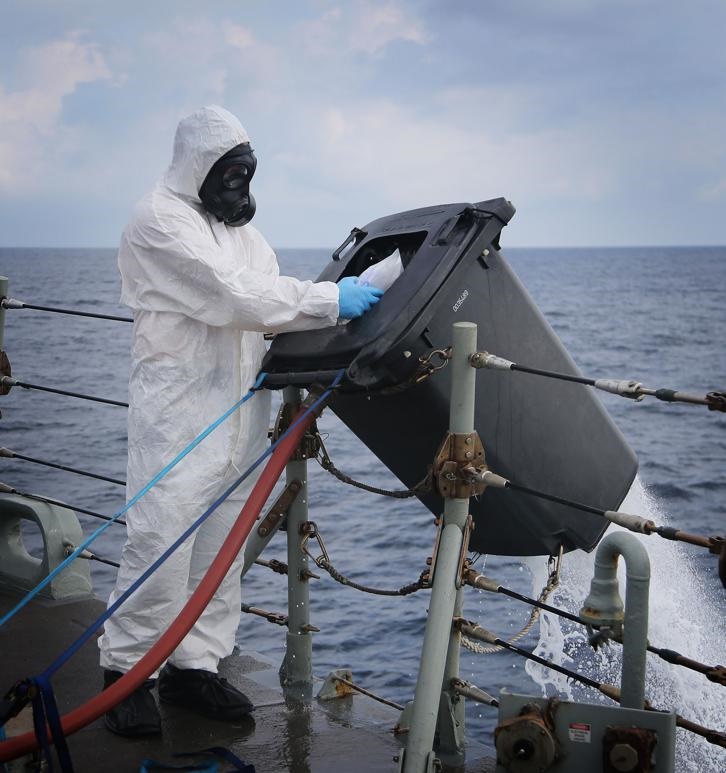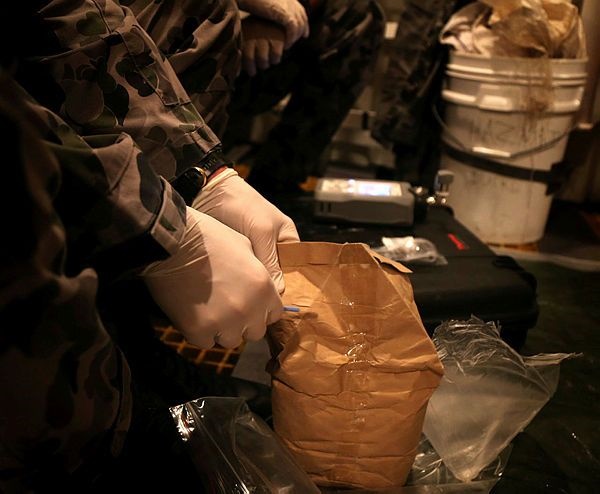
The telephone line distorts.
“We need to hurry up man, seriously dog,” says Mark*, the American voice on the one end of the line.
“If these people leave, somebody owes me money, dude, because I am not carrying that shit.”
“Okay, there is no problem brother, just give us tomorrow,” Iddy replies.
The line distorts again, but neither man is guarded about what they’re saying, and why should they be? This isn’t the US, where government surveillance programmes can spy on private conversations, red flagging words like “dope” and “buyer”.
But someone is listening. As soon as Mark puts down the phone, he switches off the recording device and notes down the time of the call.
*For more recordings check out our Special Projects page here
It’s two years later and Mark, a 42-year-old undercover agent, is sitting in the witness box at the Kempton Park Regional Court.
“I’m an undercover narcotics detective for the Houston Police Department in Texas … I’ve been an undercover agent for approximately 15 years,” says Mark.
Two years ago, he flew into South Africa to buy 10kg of high-grade heroin from a syndicate that uses South Africa as a transit point for drugs destined for the US.
The sting, authorised as part of Operation Stretch, is part of a joint investigation by the US department of homeland security and the Hawks.
In a room at the Peermont Hotel at Emperors Palace in Kempton Park, Mark was briefed by his handler, Special Agent Matthew Malmquist, and Captain Mark de Bruin from the Hawks.
They handed him a covert recording device and Mark made contact first with “Basit”, a Pakistani dealer based in Dubai, and then with “Iddy”, another syndicate member in Tanzania. Finally, he called the syndicate’s local connection, Tiko Emmanuel Adam.
Fast forward two years and Helen Peter is sitting outside court, nervously twisting her red and yellow headscarf in her fingers.
“My daughter doesn’t know what heroin looks like,” Helen hisses, trying hard not to cry. “She’s poor, she’s just trying to survive. When she’s at home in Tanzania, she just stays at home.”
Her daughter, Rehema Selemani (32), has been charged as an accomplice in the 10kg heroin deal that undercover agent Mark orchestrated. But because Operation Stretch involved a number of deals, she was only arrested in March last year as the plane she boarded to Tanzania was about to take off.
As part of Operation Stretch, the Hawks have arrested 14 people in seven different cases, and have seized drugs, cash and properties worth R250 million.
But Rehema is by no means a big fish.
In 2006, she graduated with a two-year diploma in journalism, but was unable to find a job in Tanzania, so she started making regular trips to South Africa.
“I was coming to South Africa to see if my friend can assist me to settle in Cape Town and assist me to get a job,” she said through her court-appointed translator.
Unable to find one, she had to keep leaving. Then, in 2010, she met Tiko and stayed. Tiko, described only as tall with long braids, ran a clearing and forwarding company in Rhodesfield in Kempton Park, moving luggage between Tanzania and South Africa. They have a three-year-old daughter, Ruthie. It has now been almost a year since Rehema has seen Ruthie, and Helen says the child now calls her out to her – “mamma, mamma!”
Two weeks ago, Rehema testified that on the day the deal with the undercover agent was done, she merely tagged along to Emperors Palace, completely unaware a major heroin deal was under way.
By the time the Hawks arrested her, Tiko had left South Africa. A warrant of arrest has been issued for him, but for now, Rehema sits in the dock alone.
Susan Comrie spoke to PowerFM about SA's Heroin trafficking syndicate:
The southern route
Last year, the United Nations Office on Drugs and Crime (UNODC) warned that Africa was increasingly becoming the trafficking route of choice for heroin from Afghanistan.
Faced with an increasingly unstable security situation along the traditional Balkan route through countries like Iran, Iraq, Syria and Turkey, traffickers are opting for a “southern route”, leaving small ports along the Makran coast of Iran and Pakistan on dhows headed for Kenya and Tanzania.
“Everything is coming from Tanzania,” Tiko told Mark. “From Tanzania and then to Zambia, and then Zambia to Zimbabwe.”
Ironically, what attracts international investors to South Africa also attracts heroin traffickers.
“South Africa is a stable country with good international shipping and financial links,” the UNODC says. “Traffickers are able to use South Africa’s transport infrastructure to move drugs to southeast Asia, Australia, Europe and North America. South Africa’s robust financial base also makes it an effective means to move drug money, relative to other parts of Africa.”
A triumph for traffickers
It’s still rare for heroin from Afghanistan to end up in the US.
“Most of the heroin available in the US … is sourced from Mexico and South America,” a spokesperson for the Drug Enforcement Administration (DEA) at the US embassy in Pretoria says.
Last year, the UNODC said it would be a “triumph for traffickers” if heroin smuggled through Africa found its way to the US.
After shipments of heroin started turning up in the US and Canada, and a number of arrests were made, the Hawks launched Operation Stretch.
Court records show that one month before the Emperors Palace deal, a senior member of the police’s covert intelligence collection unit on narcotics tried to recruit Tiko and Rehema as informants against the syndicate.
“I informed the two of them that we are not really interested in them, but that we are investigating a person by the name of Haji, with the nickname Scuba, and we know that they are working for him in the smuggling of heroin from Tanzania to South Africa,” Lieutenant Colonel Daniel Coertzen testified.
At the time – October 2013 – police had just raided several storage facilities that Tiko rented. It was almost midnight when Coertzen approached Tiko and Rehema at the Kempton Park storage unit.
“I explained that we knew they were in charge of storage facilities … I informed that them if they can assist us to give information on Haji, we can register them as informants.”
But, Coertzen said, both just smiled and said they didn’t know what he was talking about.
The 10kg deal
Rehema’s trial revolved around whether or not she actively participated in the deal, or whether she was along for the ride. She is charged with acquiring and possessing the proceeds of unlawful activities.
She pleaded not guilty and insisted that she didn’t know Tiko was dealing heroin. But the state has countered, saying Coertzen’s attempt to recruit them a month before the deal, as well as her presence during the deal, shows that she was not an innocent bystander.
On November 25 2013, Rehema was present at a meeting at the Nandos at Emperors Palace at 4pm, where drugs were discussed.
On distorted recordings, Mark can be heard saying “bring me my shit” and “how long will it take to package it?” Rehema’s voice is heard on tape in between, but what she says is unclear.
The more damning evidence was recorded at 7pm that evening, when cameras captured her following Mark and Tiko to their car, where Tiko unloaded a bag containing 9.76kg of heroin from the boot into Mark’s suitcase.
Inside the car, Mark handed over $10 000 in two stacks he had stashed inside a pair of Nike shoes – a present for Iddy.
Mark testified that Rehema took one of the stacks of bills and counted the money.
Rehema denies this, saying she was sitting in the back, and had no idea why Mark was handing her boyfriend such a large sum of money.
But the recording captured inside the car has become the central piece of evidence in the case.
“I am getting it right now and they counting the money right now,” Mark told Basit over the phone. “How much did I pay you all? Say it loud.”
“Ten thousand USA dollar is it?” Tiko asks.
“Yes … 10 000,” Rehema replies.
On Friday, judgment was supposed to have been passed in Rehema’s case. It was postponed.
* Mark’s real identity has been withheld at the request of the prosecutor because he remains undercover.
On South Africa’s streets, a gram of heroin will cost between R150 and R250. The wholesale price is between R180 000 and R250 000 a kilogram.
“Heroin is a very pure form of drug,” Captain Mark de Bruin told the court. “You can’t use pure heroin – it has to be cut. This also increases your mass, so there are big profit margins in heroin.”
UNODC figures show heroin prices increase dramatically as it moves along the trafficking routes, with prices compensating smugglers for the risks they run of having their product intercepted.
“The value of heroin in the UK means that South African crime groups can afford to lose around six to seven out of every 10 packages trafficked, and can still make a profit,” UNODC says.
Demand for heroin in the US is drastically increasing, in part because of a crackdown on prescription drug use, which is pushing drug users towards cheaper alternatives like heroin.
“In 2014, nationwide kilogram prices for South American heroin ranged from a low of $10 000 per kilogram to a high of $120 000 per kilogram,” a spokesperson for the DEA said.
Although Mark paid $10 000 for 10kgs of heroin, court records show this was only to move the drugs from Tanzania to South Africa. At least another $55 000 was allegedly electronically transferred to Basit.




 Publications
Publications
 Partners
Partners




